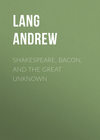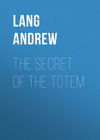Kitabı oku: «The Valet's Tragedy, and Other Studies», sayfa 3
*Bibl. Nat., Fonds Francais, No. 10665.
On June 24, Colbert wrote to Louis about a conversation with Charles. It is plain that proofs of a murder-plot by Marsilly were scanty or non-existent, though Colbert averred that Marsilly had discussed the matter with the Spanish Ministers. ‘Charles knew that he had had much conference with Isola, the Spanish ambassador.’ Meanwhile, up to July 1, Colbert was trying to persuade Marsilly’s valet to go to France, which he declined to do, as we have seen. However, the luckless lad, by nods and by veiled words, indicated that he knew a great deal. But not by promise of security and reward could the valet be induced to return to France. ‘I might ask the King to give up Martin, the valet of Marsilly, to me,’ Colbert concludes, and, by hook or by crook, he secured the person of the wretched man, as we have seen. In a postscript, Colbert says that he has heard of the execution of Marsilly.
By July 19, as we saw in the previous essay, Louvois was bidding Saint-Mars expect, at Pignerol from Dunkirk, a prisoner of the highest political importance, to be guarded with the utmost secrecy, yet a valet. That valet must be Martin, now called Eustache Dauger, and his secret can only be connected with Marsilly. It may have been something about Arlington’s negotiations through Marsilly, as compromising Charles II. Arlington’s explanations to the Foreign Committee were certainly incomplete and disingenuous. He, if not Charles, was more deeply engaged with Marsilly than he ventured to report. But Marsilly himself avowed that he did not know why he was to be executed.
Executed he was, in circumstances truly hideous. Perwich, June 5, wrote to an unnamed correspondent in England: ‘They have all his papers, which speak much of the Triple Alliance, but I know not whether they can lawfully hang him for this, having been naturalised in Holland, and taken in a privileged country’ (Switzerland). Montague (Paris, June 22, 1669) writes to Arlington that Marsilly is to die, so it has been decided, for ‘a rape which he formerly committed at Nismes,’ and after the execution, on June 26, declares that, when broken on the wheel, Marsilly ‘still persisted that he was guilty of nothing, nor did know why he was put to death.’
Like Eustache Dauger, Marsilly professed that he did not know his own secret. The charge of a rape, long ago, at Nismes, was obviously trumped up to cover the real reason for the extraordinary vindictiveness with which he was pursued, illegally taken, and barbarously slain. Mere Protestant restlessness on his part is hardly an explanation. There was clearly no evidence for the charge of a plot to murder Louis XIV., in which Colbert, in England, seems to have believed. Even if the French Government believed that he was at once an agent of Charles II., and at the same time a would-be assassin of Louis XIV., that hardly accounts for the intense secrecy with which his valet, Eustache Dauger, was always surrounded. Did Marsilly know of the Secret Treaty, and was it from him that Arlington got his first inkling of the royal plot? If so, Marsilly would probably have exposed the mystery in Protestant interests. We are entirely baffled.
In any case, Francis Vernon, writing from Paris to Williamson (?) (June 19-29 1669), gave a terrible account of Marsilly’s death. (For the letter, see Note V.) With a broken piece of glass (as we learn from another source), Marsilly, in prison, wounded himself in a ghastly manner, probably hoping to die by loss of blood. They seared him with a red-hot iron, and hurried on his execution. He was broken on the wheel, and was two hours in dying (June 22). Contrary to usage, a Protestant preacher was brought to attend him on the scaffold. He came most reluctantly, expecting insult, but not a taunt was uttered by the fanatic populace. ‘He came up the scaffold, great silence all about.’ Marsilly lay naked, stretched on a St. Andrew’s cross. He had seemed half dead, his head hanging limp, ‘like a drooping calf.’ To greet the minister of his own faith, he raised himself, to the surprise of all, and spoke out loud and clear. He utterly denied all share in a scheme to murder Louis. The rest may be read in the original letter (Note V.).
So perished Roux de Marsilly; the history of the master throws no light on the secret of the servant. That secret, for many years, caused the keenest anxiety to Louis XIV. and Louvois. Saint-Mars himself must not pry into it. Yet what could Dauger know? That there had been a conspiracy against the King’s life? But that was the public talk of Paris. If Dauger had guilty knowledge, his life might have paid for it; why keep him a secret prisoner? Did he know that Charles II. had been guilty of double dealing in 1668-1669? Probably Charles had made some overtures to the Swiss, as a blind to his private dealings with Louis XIV., but, even so, how could the fact haunt Louis XIV. like a ghost? We leave the mystery much darker than we found it, but we see reason good why diplomatists should have murmured of a crusade against the cruel and brigand Government which sent soldiers to kidnap, in neighbouring states, men who did not know their own crime.
To myself it seems not improbable that the King and Louvois were but stupidly and cruelly nervous about what Dauger MIGHT know. Saint-Mars, when he proposed to utilise Dauger as a prison valet, manifestly did not share the trembling anxieties of Louis XIV. and his Minister; anxieties which grew more keen as time went on. However, ‘a soldier only has his orders,’ and Saint-Mars executed his orders with minute precision, taking such unheard-of precautions that, in legend, the valet blossomed into the rightful king of France.
* * *
APPENDIX
ORIGINAL PAPERS IN THE CASE OF ROUX DE MARSILLY.*
Note I. Letter of Mons. P. du Moulin to Arlington.**
Paris, May ye 19-29, 1669.
My Lord,
…
Ever since that Monsieur de Ruvigny was in England last, and upon the information he gave, this King had a very great desire to seize if it were possible this Roux de Marsilly, and several persons were sent to effect it, into England, Holland, Flanders, and Franche Comte: amongst the rest one La Grange, exempt des Gardes, was a good while in Holland with fifty of the guards dispersed in severall places and quarters; But all having miscarried the King recommended the thing to Monsieur de Turenne who sent some of his gentlemen and officers under him to find this man out and to endeavour to bring him alive. These men after foure months search found him att last in Switzerland, and having laid waite for him as he came out from Monsr Balthazar’s house (a commander well knowne) they took him and carryed him to Gex before they could be intercepted and he rescued. This was done only by a warrant from Monsieur de Turenne but as soone as they came into the french dominions they had full powers and directions from this court for the bringing of him hither. Those that tooke him say they found no papers about him, but that he desired them to write to Monsr Balthazar to desire him to take care of his papers and to send him THE COMMISSION HE HAD FROM ENGLAND and a letter being written to that effect it was signed by the prisoner and instead of sending it as they had promised, they have brought it hither along with them. THEY DO ALL UNANIMOUSLY REPORT THAT HE DID CONSTANTLY AFFIRME THAT HE WAS IMPLOYED BY THE KING OF GREAT BRITTAIN AND DID ACT BY HIS COMMISSION; so that the general discourse here in towne is that one of the King of England’s agents is in the Bastille; though att Court they pretend to know nothing of it and would have the world think they are persuaded he had no relacion to his Majesty. Your Lordship hath heard by the publique newes how overjoyed this King was att the bringing of this prisoner, and how farr he expressed his thanks to the cheife person employed in it, declaring openly that this man had long since conspired against his life, and agreable to this, Monsieur, fearing that My lord Ambr. was come to interpose on the prisoner’s behalfe asked him on Friday last att St. Germains whether that was the cause of his coming, and told him that he did not think he would speake for a man that attempted to kill the King. The same report hath been hitherto in everybody’s mouth but they begin now to mince it att court, and Monsieur de Ruvigny would have persuaded me yesterday, they had no such thoughts. The truth is I am apt to believe they begin now to be ashamed of it: and I am informed from a very good hand that Monsieur de Lionne who hath been at the Bastille to speake with the prisoner hath confessed since that he can find no ground for this pretended attempting to the King’s life, and that upon the whole he was of opinion that this man had much better been left alone than taken, and did look upon what he had done as the intemperancy of an ill-settled braine. And to satisfy your Lordship that they are nettled here, and are concerned to know what may be the issue of all this, Monsieur de Turenne’s secretary was on Munday last sent to several forreigne Ministers to pump them and to learne what their thoughts were concerning this violence committed in the Dominions of a sovereign and an allye whereupon he was told by one of them that such proceedings would bring Europe to the necessity of entering into a Croisade against them, as formerly against the infidels. If I durst I would acquaint your Lordship with the reflexions of all publique ministers here and of other unconcerned persons in relation to his Majesty’s owning or disowning this man; but not knowing the particulars of his case, nor the grounds his Ma’ty may go upon, I shall forbeare entering upon this discourse…
Your Lordships’ etc.
P. Du MOULIN.
*State Papers, France, vol. 126.
**Ibid.
–
Note II. Paper endorsed ‘Mr. Montague originally in Cypher. Received May 19, ‘69. Read in foreigne Committee, 23 May. Roux de Marsilli.‘*
I durst not venture to sollicite in Monsr Roux Marsilly’s behalfe because I doe not know whether the King my Master hath imployed him or noe; besides he is a man, as I have beene told by many people here of worth, that has given out that hee is resolved to kill the French king at one time or other, and I think such men are as dangerous to one king as to another: hee is brought to the Bastille and I believe may be proceeded against and put to death, in very few daies. There is great joy in this Court for his being taken, and a hundred thousand crownes, I am told very privately, set upon his head; the French Ambassador in England watcht him, and hee has given the intelligence here of his being employed by the King, and sent into Switzerland by my Master to draw the Swisses into the Triple League. Hee aggravates the business as much as hee can to the prejudice of my Master to value his owne service the more, and they seeme here to wonder that the King my Master should have imployed or countenanced a man that had so base a design against the King’s Person, I had a great deal of discourse with Monsieur about it, but I did positively say that he had noe relation to my knowledge to the King my Master, and if he should have I make a question or noe whither in this case the King will owne him. However, my Lord, I had nothing to doe to owne or meddle in a buisines that I was so much a stranger to…
This Roux Marsilly is a great creature of the B. d’Isola’s, wch makes them here hate him the more. The Spanish Resident was very earnest with mee to have done something in behalfe of Marsilly, but I positively refused.
*State Papers, France, vol. 126.
–
Note III. [A paper endorsed ‘Roux de Marsilli. Read in for. Committee, 23d May.‘]*
Roux de Marsilly came hither when your Majesty had made a union with Holland for making the Peace betwixt the two Crownes and when it was probable the opposition to the Peace would bee on the side of France.
Marsilly was heard telling of longe things but noe proposition made to him or by him.
Presently the Peace was made and Marsilly told more plainly wee had no use of him. A little summe of money was given him to returne as he said whither he was to goe in Switzerland. Upon which hee wishing his Ma’ty would renew his allience wth the Cantons hee was answerd his M’ty would not enter into any comerce with them till they had sent the regicides out of their Country, hee undertooke it should bee done. Seven or eight months after wth out any intimation given him from hence or any expectation of him, he comes hither, but was so coldly used I was complained off for not using so important a man well enough. I answerd I saw noe use the King could make of him, because he had no credit in Switzerlande and for any thing else I thought him worth nothing to us, but above all because I knew by many circumstances HEE WAS ANOTHER MAN’S SPY and soe ought not to be paid by his Majesty. Notwithstanding this his Ma’ty being moved from compassion commanded hee should have some money given him to carry him away and that I should write to Monsieur Balthazar thanking him in the King’s name for the good offices hee rendered in advancing a good understanding betwixt his Ma’ty and the Cantons and desiring him to continue them in all occasions.
The man was always looked upon as a hot headed and indiscreete man, and soe accordingly handled, hearing him, but never trusting him with anything but his own offered and undesired endeavours to gett the Regicides sent out of Switzerland.
*State Papers, France, vol. 126.
–
Note IV. Letter of W. Perwich to – .*
Paris: June 5, 1669.
Honored Sir,
…
Roux Marsilly has prudently declared hee had some what of importance to say but it should bee to the King himselfe wch may be means of respiting his processe and as he hopes intercession may bee made for him; but people talk so variously of him that I cannot tell whether hee ought to bee owned by any Prince; the Suisses have indeed the greatest ground to reclayme him as being taken in theirs. They have all his papers which speak much of the Triple Alliance; if they have no other pretext of hanging him I know not whether they can lawfully for this, hee having been naturallised in Holland and taken in a priviledged Country…
*State Papers, France, vol. 126.
–
Note V. Francis Vernon to [Mr. Williamson?].*
Paris: June 19-29 1669.
Honored Sir,
My last of the 26th Currt was soe short and soe abrupt that I fear you can peck butt little satisfaction out of it.
…
I did intend to have written something about Marsilly but that I had noe time then. In my letter to my Lord Arlington I writt that Friday 21 Currt hee wounded himself wch he did not because hee was confronted with Ruvigny as the Gazettes speake. For he knew before hee should dye, butt he thought by dismembering himself that the losse of blood would carry him out of the world before it should come to bee knowne that he had wounded himselfe. And when the Governor of the Bastille spied the blood hee said It was a stone was come from him which caused that effusion. However the governor mistrusted the worst and searcht him to see what wound he had made. So they seared him and sent word to St. Germaines which made his execution be hastened. Saturday about 1 of the clock hee was brought on the skaffold before the Chastelet and tied to St. Andrew’s Crosse all wch while he acted the Dying man and scarce stirred, and seemed almost breathlesse and fainting. The Lieutenant General presst him to confesse and ther was a doctor of the Sorbon who was a counsellr of the Castelet there likewise to exhort him to disburthen his mind of any thing which might be upon it. Butt he seemed to take no notice and lay panting.
Then the Lieutenant Criminel bethought himself that the only way to make him speake would bee to sende for a ministre soe hee did to Monsr Daillie butt hee because the Edicts don’t permitt ministres to come to condemned persons in publique butt only to comfort them in private before they goe out of prison refused to come till hee sent a huissier who if hee had refused the second time would have brought him by force. At this second summons hee came butt not without great expectations to bee affronted in a most notorious manner beeing the first time a ministre came to appeare on a scaffold and that upon soe sinister an occasion. Yet when he came found a great presse of people. All made way, none lett fall soe much as a taunting word. Hee came up the Scaffold, great silence all about. Hee found him lying bound stretched on St Andrew’s Crosse, naked ready for execution. Hee told him hee was sent for to exhort him to die patiently and like a Christian. Then immediately they were all surprized to see him hold up his head wch he lett hang on one side before like a drooping calfe and speake as loud and clear as the ministre, to whom he said with a chearful air hee was glad to see him, that hee need not question butt that hee would dye like a Christian and patiently too. Then hee went and spoke some places of Scripture to encourage him which he heard with great attention. They afterward came to mention some things to move him to contrition, and there hee tooke an occasion to aggravate the horrour of a Crime of attempting against the King’s person. Hee said hee did not know what hee meant. For his part hee never had any evill intention against the Person of the King.
The Lieutenant Criminel stood all the while behind Monsieur Daillie and hearkened to all and prompted Monsr Daillie to aske him if hee had said there were 10 Ravillacs besides wch would doe the King’s businesse. Hee protested solemnly hee never said any such words or if hee did hee never remembred, butt if hee had it was with no intention of Malice. Then Monsieur Daillie turned to the people and made a discourse in vindication of those of the Religion that it was no Principle of theirs attempts on the persons of King[s] butt only loyalty and obedience. This ended hee went away; hee staid about an hour in all, and immediately as soon as he was gone, they went to their worke and gave him eleven blows with a barre and laid him on the wheele. Hee was two houres dying. All about Monsr Daillie I heard from his own mouth for I went to wait on him because it was reported hee had said something concerning the King of England butt hee could tell mee nothing of that. There was a flying report that he should say going from the Chastelet – The Duke of York hath done mee a great injury – The Swisses they say resented his [Marsilly’s] taking and misst butt half an hour to take them which betrayed him [the monk] after whom they sent. When he was on the wheele hee was heard to say Le Roy est grand tyrant, Le Roy me traitte d’un facon fort barbare. All that you read concerning oaths and dying en enrage is false all the oaths hee used being only asseverations to Monsr Daillie that he was falsely accused as to the King’s person.
Sr I am etc
FRANS. VERNON.
*State Papers, France, vol. 126.
–
Note VI. The Ambassador Montague to Arlington.*
Paris: June 22, 1669.
My Lord,
…
The Lieutenant criminel hath proceeded pretty farre with Le Roux Marsilly. The crime they forme their processe on beeing a rape which he had formerly committed at Nismes soe that he perceiving but little hopes of his life, sent word to the King if hee would pardon him he could reveale things to him which would concerne him more and be of greater consequence to him, than his destruction.
*State Papers, France, vol. 126.
–
Note VII. The same to the same.
Paris: June 26, ‘69.
My Lord,
…
I heard that Marsilly was to be broke on the wheel and I gave order then to one of my servants to write Mr. Williamson word of it, soe I suppose you have heard of it already: they hastened his execution for feare he should have dyed of the hurt he had done himself the day before; they sent for a minister to him when he was upon the scaffold to see if he would confesse anything, but he still persisted that he was guilty of nothing nor DID NOT KNOW WHY HE WAS PUT TO DEATH…
III. THE MYSTERY OF SIR EDMUND BERRY GODFREY
When London was a pleasanter place than it is to-day, when anglers stretched their legs up Tottenham Hill on their way to fish in the Lee; when the ‘best stands on Hackney river’ were competed for eagerly by bottom fishers; when a gentleman in St. Martin’s Lane, between the hedges, could ‘ask the way to Paddington Woods;’ when a hare haunted Primrose Hill and was daily pursued by a gallant pack of harriers; enfin, between three and four on the afternoon of October 17, 1678, two common fellows stepped into the White House tavern in the fields north of Marylebone, a house used as a club by a set of Catholic tradesmen. They had been walking in that region, and, as the October afternoon was drawing in, and rain was falling, they sought refuge in the White House. It would appear that they had not the means of assuaging a reasonable thirst, for when they mentioned that they had noticed a gentleman’s cane, a scabbard, a belt, and some add a pair of gloves, lying at the edge of a deep dry ditch, overgrown with thick bush and bramble, the landlord offered the new comers a shilling to go and fetch the articles.* But the rain was heavy, and probably the men took the shilling out in ale, till about five o’clock, when the weather held up for a while.
*A rather different account by the two original finders, Bromwell and Walters, is in L’Estrange’s Brief History, iii. pp. 97, 98. The account above is the landlord’s. Lords’ MSS., Hist. MSS. Com., xi. pp.
2, 46, 47.
The delay was the more singular if, as one account avers, the men had not only observed the cane and scabbard outside of the ditch, on the bank, but also a dead body within the ditch, under the brambles.* By five o’clock the rain had ceased, but the tempestuous evening was dark, and it was night before Constable Brown, with a posse of neighbours on foot and horseback, reached the ditch. Herein they found the corpse of a man lying face downwards, the feet upwards hung upon the brambles; thus half suspended he lay, and the point of a sword stuck out of his back, through his black camlet coat.** By the lights at the inn, the body was identified as that of Sir Edmund Berry Godfrey, a Justice of the Peace for Westminster, who had been missing since Saturday October 12. It is an undeniable fact that, between two and three o’clock, before the body was discovered and identified, Dr. Lloyd, Dean of St. Asaph’s, and Bishop Burnet, had heard that Godfrey had been found in Leicester Fields, with his own sword in his body. Dr. Lloyd mentioned his knowledge in the funeral sermon of the dead magistrate. He had the story from a Mr. Angus, a clergyman, who had it from ‘a young man in a grey coat,’ in a bookseller’s shop near St. Paul’s, about two o’clock in the afternoon. Angus hurried to tell Bishop Burnet, who sent him on to Dr. Lloyd.*** Either the young man in the grey coat knew too much, or a mere rumour, based on a conjecture that Godfrey had fallen on his own sword, proved to be accurate by accident; a point to be remembered. According to Roger Frith, at two o’clock he heard Salvetti, the ambassador of the Duke of Tuscany, say: ‘Sir E. Godfrey is dead… the young Jesuits are grown desperate; the old ones would do no such thing.’ This again may have been a mere guess by Salvetti.****
*Pollock, Popish Plot, pp. 95, 96.
**Brown in Brief History, iii. pp. 212-215, 222.
***L’Estrange, Brief History, iii. pp. 87-89.
****Lords’ MSS. p. 48, October 24.
In the circumstances of the finding of the body it would have been correct for Constable Brown to leave it under a guard till daylight and the arrival of surgical witnesses, but the night was threatening, and Brown ordered the body to be lifted; he dragged out the sword with difficulty, and had the dead man carried to the White House Inn. There, under the candles, the dead man, as we said, was recognised for Sir Edmund Berry Godfrey, a very well-known justice of the peace and wood and coal dealer. All this occurred on Thursday, October 17, and Sir Edmund had not been seen by honest men and thoroughly credible witnesses, at least, since one o’clock on Saturday, October 12. Then he was observed near his house in Green Lane, Strand, but into his house he did not go.
Who, then, killed Sir Edmund?
The question has never been answered, though three guiltless men were later hanged for the murder. Every conceivable theory has been tried; the latest is that of Mr. Pollock: Godfrey was slain by ‘the Queen’s confessor,’ Le Fevre, ‘a Jesuit,’ and some other Jesuits, with lay assistance.* I have found no proof that Le Fevre was either a Jesuit or confessor of the Queen.
*Pollock, The Popish Plot, Duckworth, London, 1903.
As David Hume says, the truth might probably have been discovered, had proper measures been taken at the moment. But a little mob of horse and foot had trampled round the ditch in the dark, disturbing the original traces. The coroner’s jury, which sat long and late, on October 18 and 19, was advised by two surgeons, who probably, like the rest of the world, were biassed by the belief that Godfrey had been slain ‘by the bloody Papists.’ In the reign of mad terror which followed, every one was apt to accommodate his evidence, naturally, to that belief. If they did not, then, like the two original finders, Bromwell and Walters, they might be thrown, heavily ironed, into Newgate.*
*Lords’ MSS. P. 47, note 1.
But when the Popish Plot was exploded, and Charles II. was firm on his throne, still more under James II., every one was apt to be biassed in the opposite direction, and to throw the guilt on the fallen party of Oates, Bedloe, Dugdale, and the other deeply perjured and infamous informers. Thus both the evidence of 1678-1680, and that collected in 1684-1687, by Sir Roger L’Estrange, J.P. (who took great trouble and was allowed access to the manuscript documents of the earlier inquiries), must be regarded with suspicion.*
*L’Estrange, Brief History of the Times, London, 1687.
The first question is cui bono? who had an interest in Godfrey’s death? Three parties had an interest, first, the Catholics (IF Godfrey knew their secrets); next, the managers of the great Whig conspiracy in favour of the authenticity of Oates’s Popish Plot; last, Godfrey himself, who was of an hereditary melancholy (his father had suicidal tendencies), and who was involved in a quandary whence he could scarcely hope to extricate himself with life and honour.
Of the circumstances of Godfrey’s quandary an account is to follow. But, meanwhile, the theory of Godfrey’s suicide (though Danby is said to have accepted it) was rejected, probably with good reason (despite the doubts of L’Estrange, Hume, Sir George Sitwell, and others), by the coroner’s jury.*
*Sitwell, The First Whig, Sacheverell.
Privately printed, 1894, Sir George’s book – a most interesting volume, based on public and private papers – unluckily is introuvable. Some years have passed since I read a copy which he kindly lent me.
The evidence which determined the verdict of murder was that of two surgeons. They found that the body had been severely bruised, on the chest, by kicks, blows of a blunt weapon, or by men’s knees. A sword-thrust had been dealt, but had slipped on a rib; Godfrey’s own sword had then been passed through the left pap, and out at the back. There was said to be no trace of the shedding of fresh living blood on the clothes of Godfrey, or about the ditch. What blood appeared was old, the surgeons averred, and malodorous, and flowed after the extraction of the sword.
L’Estrange (1687) argues at great length, but on evidence collected later, and given under the Anti-Plot bias, that there was much more ‘bloud’ than was allowed for at the inquest. But the early evidence ought to be best. Again, the surgeons declared that Godfrey had been strangled with a cloth (as the jury found), and his neck dislocated. Bishop Burnet, who viewed the body, writes (long after the event): ‘A mark was all round his neck, an inch broad, which showed he was strangled… And his neck was broken. All this I saw.‘*
*Burnet, History of his own Time, ii. p. 741. 1725.
L’Estrange argued that the neck was not broken (giving an example of a similar error in the case of a dead child), and that the mark round the neck was caused by the tightness of the collar and the flow of blood to the neck, the body lying head downwards. In favour of this view he produced one surgeon’s opinion. He also declares that Godfrey’s brothers, for excellent reasons of their own, refused to allow a thorough post-mortem examination. ‘None of them had ever been opened,’ they said. Their true motive was that, if Godfrey were a suicide, his estate would be forfeited to the Crown, a point on which they undoubtedly showed great anxiety.
Evidence was also given to prove that, on Tuesday and Wednesday, October 15 and 16, Godfrey’s body was not in the ditch. On Tuesday Mr. Forsett, on Wednesday Mr. Harwood had taken Mr. Forsett’s harriers over the ground, in pursuit of the legendary hare. They had seen no cane or scabbard; the dogs had found no corpse. L’Estrange replied that, as to the cane, the men could not see it if they were on the further side of the bramble-covered ditch. As to the dogs, they later hunted a wood in which a dead body lay for six weeks before it was found. L’Estrange discovered witnesses who had seen Godfrey in St. Martin’s Lane on the fatal Saturday, asking his way to Paddington Woods, others who had seen him there or met him returning thence. Again, either he or ‘the Devil in his clothes’ was seen near the ditch on Saturday afternoon. Again, his clerk, Moore, was seen hunting the fields near the ditch, for his master, on the Monday afternoon. Hence L’Estrange argued that Godfrey went to Paddington Woods, on Saturday morning, to look for a convenient place of suicide: that he could not screw his courage to the sticking place; that he wandered home, did not enter his house, roamed out again, and, near Primrose Hill, found the ditch and ‘the sticking place.’ His rambles, said L’Estrange, could neither have been taken for business nor pleasure. This is true, if Godfrey actually took the rambles, but the evidence was not adduced till several years later; in 1678 the witnesses would have been in great danger. Still, if we accept L’Estrange’s witnesses for Godfrey’s trip to Paddington and return, perhaps we ought not to reject the rest.*



![XXXII Ballades in Blue China [1885]](https://cdn.litres.ru/pub/c/cover_100/25230660.jpg)





